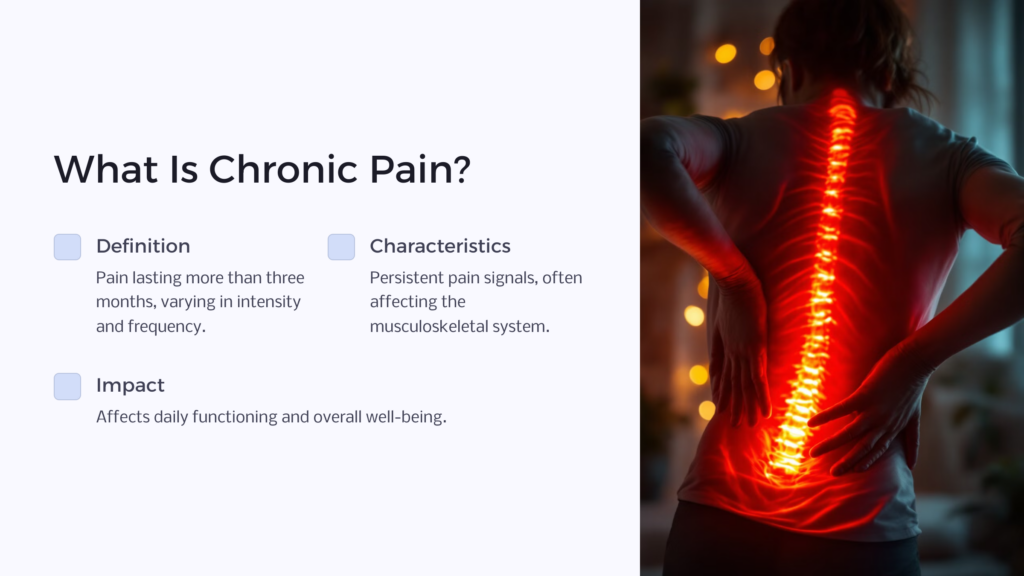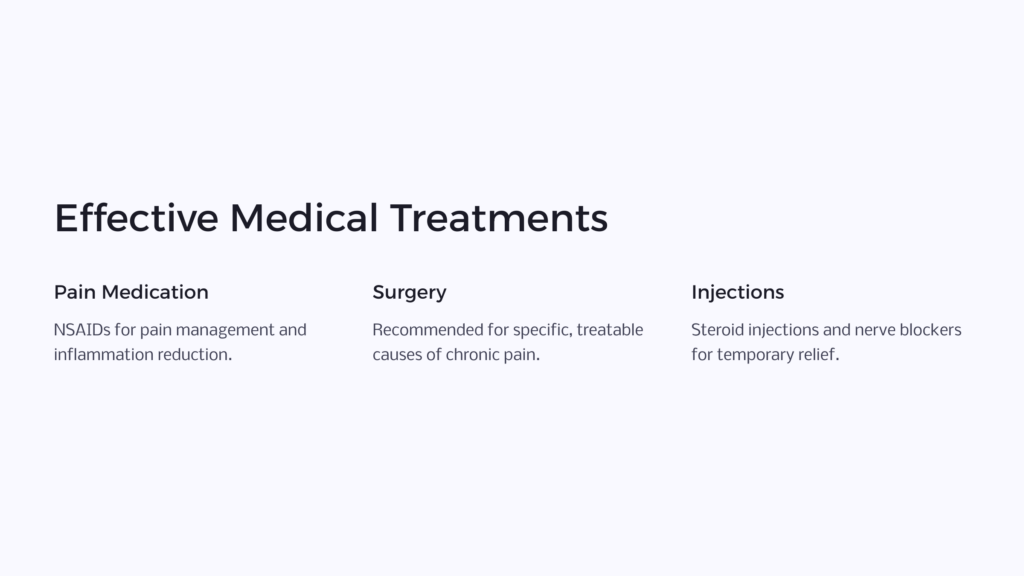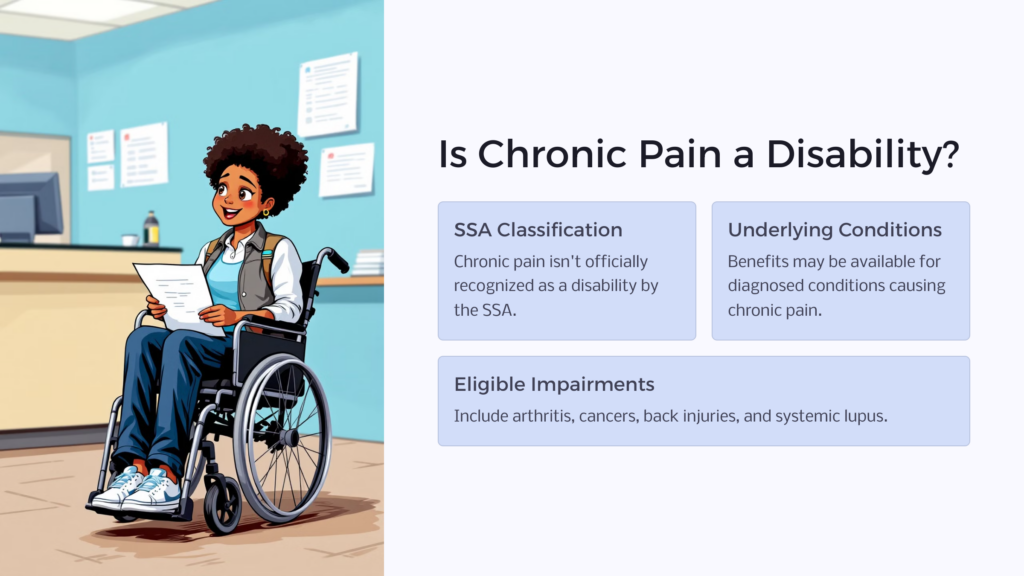Experiencing pain once in a while is something many of us are familiar with. However, some individuals feel persistent and severe pain that affects their daily lives. If you’re one of these people, you may be entitled to social security disability benefits. Still, proving your chronic pain and making claims to receive these benefits may be a difficult process. Benefits.com has shared an informative article to help you understand what chronic pain is and how you can get disability compensation. Keep reading to learn more.
What Is Chronic Pain?

Your musculoskeletal health is an essential aspect of your overall well-being. Having well-functioning muscles, bones, and other tissues is important for efficient movement and daily functioning. Unfortunately, the musculoskeletal system is vulnerable to an array of issues, often left untreated because some people deem their symptoms insignificant.
These untreated symptoms can result in severe chronic pain, which is pain that a person feels regularly and persistently. In the medical field, a chronic pain condition is any sort of pain that lasts for more than three months. The sensation may come and go, be severe or mild, and can happen anytime or anywhere. The most common characteristic is that the pain signals never go away.
Chronic pain is not limited to the musculoskeletal system, but most of the issues that cause the sensation stem from parts of the system. These include joints, muscles, bones, and tendons.
What Are the Main Causes of Chronic Pain?
Chronic pain patients experience pain that can result from a wide range of issues in the body, especially from the musculoskeletal system. Here are some of the most common causes of the problem.
-
Issues in the Skeletal and Muscular Systems: Rheumatoid arthritis, herniated discs, and nerve damage can all cause a constant sensation of physical pain. Unfortunately, some of these disorders are to be expected as part of aging or poor lifestyle habits.
-
Past Injury: Some patients experience injuries brought about by physical trauma and accidents don’t heal properly, especially if medical professionals didn’t treat these injuries. Spinal cord injuries, torn rotator cuffs, and sprains are just a few examples of injuries that may cause long-term musculoskeletal pain.
-
Mental Health Issues: Chronic pain can sometimes happen even without apparent injury or disease to the body. This type of pain is called psychosomatic pain, and it usually stems from stress, chronic fatigue syndrome, and mood disorders like depression and anxiety that could possibly cause chronic pain syndrome.
What Are the Most Effective Medical Treatment for Chronic Pain?

There is no one way to treat chronic pain, given how the issue stems from an array of causes. To accurately treat the problem, a physician must first identify what’s causing it. Only after the medical professional knows the root cause can they recommend the right treatment available. Unfortunately, not all root causes of chronic pain are curable. In this case, pain management may be the next option available.
Here are some of the most common and effective treatments for chronic pain.
-
Pain Medication/Relievers: Nonsteroidal anti-inflammatory drugs (NSAIDs) are commonly prescribed to help manage chronic pain. These medicines also have anti-inflammatory properties that reduce swelling in problem areas, which also diminishes pain.
-
Surgery: If a doctor finds that the root cause of your chronic pain can be addressed through surgery, then they may recommend it to you. A successful operation can sometimes heal you completely from chronic pain.
-
Sedatives and Muscle Relaxers: These medications help reduce seizures and loosen tense muscles.
-
Steroid Injections and Nerve Blockers: These treatments are injected directly into the source of pain. With their anesthetic and anti-inflammatory properties, the medications help reduce or remove feelings of pain temporarily.
Is Chronic Pain Considered a Disability?

Many of those who feel the daily toll of having chronic pain may have asked questions like “Is chronic pain a disability?” This classification is important because being a person with disabilities gives the individual access to social security benefits.
Unfortunately, the Social Security Administration (SSA) doesn’t officially recognize chronic pain as a disability. This condition is only seen as a symptom of another issue. To get social security benefits, you need to get diagnosed or show medical records indicating the disease that’s causing your pain. Some of these impairments that may make you eligible for disability benefits are:
-
Inflammatory Arthritis
-
Various Cancers
-
Bowel and Renal Diseases
-
Systemic Lupus
How Is Chronic Pain Diagnosed?
There is one method where you can get chronic pain disability benefits because of chronic pain, regardless of what condition you may have. Under the residual functional capacity (RFC) assessment, the SSA can determine how much your pain causes functional limitations, especially your ability to work and live.
The RFC will check how chronic pain is affecting daily activities, such as sleeping, standing, speaking, and even cognitive abilities like remembering tasks and responding to instructions. In addition, the RFC determines the other factors that affect the intensity of your pain and how it limits your life. The evaluation will show whether or not your pain is enough to make you eligible for social security disability benefits.
Social Security Disability Benefits Associated With Chronic Pain
When talking about chronic pain suferers and social security disability benefits, we’re referring to the monthly benefits you can get if the SSA accepts your claim. Those who have the listed injuries and impairments and those who passed the RFC assessment will get their payouts if they’ve worked long enough and paid social security taxes to receive their SSDI benefits.
Let Benefits.com Help You
When applying for social security disability benefits, you will need to submit various documents that will prove your impairment. Those who have chronic pain will be required to submit medical records showing the cause of the persistent pain, such as musculoskeletal disorders and organ diseases. If you need help securing these documents, Benefits.com can help.
Our team develops the medical evidence that you need to receive disability benefits. With our help, any veteran, at-risk communities, and underserved populations have been able to get the payments they’re legally entitled to. Contact us today to get started.
 Benefits.com Advisors
Benefits.com Advisors
With expertise spanning local, state, and federal benefit programs, our team is dedicated to guiding individuals towards the perfect program tailored to their unique circumstances.
Rise to the top with Peak Benefits!
Join our Peak Benefits Newsletter for the latest news, resources, and offers on all things government benefits.




















